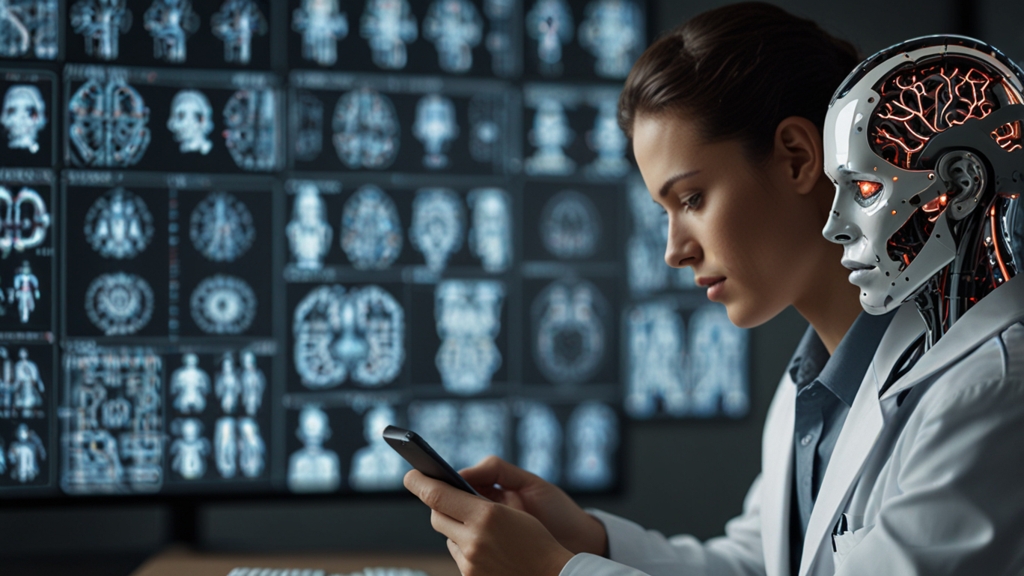The Impact of AI on Mental Health: A Double-Edged Sword
The advent of Artificial Intelligence (AI) has revolutionized various sectors, including healthcare. One area where it has shown significant promise is in the realm of mental health. While AI offers several benefits, it also poses certain risks, making its impact a double-edged sword.
Benefits of AI in Mental Health
AI has the potential to revolutionize mental health care by offering new avenues for diagnosis, treatment, and support. Here are some of the primary benefits:
Early Detection and Diagnosis
AI algorithms can analyze vast amounts of data quicker and more accurately than human professionals. Machine learning models can identify patterns in speech, text, and even facial expressions to detect early signs of mental health issues like depression, anxiety, and PTSD. This can lead to early intervention, which is crucial for effective treatment.
Personalized Treatment Plans
AI can develop personalized treatment recommendations based on individual data. By analyzing a patient's history and preferences, AI can suggest tailored therapeutic approaches, medications, and lifestyle changes. This personalized care can improve treatment outcomes and patient satisfaction.
Remote Access and Support
Telehealth platforms powered by AI can provide remote counseling and support, breaking down geographical barriers. AI chatbots can be available 24/7, offering immediate support and bridging the gap between traditional therapy sessions.
"AI-driven tools like sentiment analysis and predictive analytics can offer invaluable insights for mental health professionals, enabling them to provide better, more personalized care." – Dr. Jane Smith, Psychiatrist
The Dark Side of AI in Mental Health
Despite its advantages, the integration of AI in mental health care is not without its challenges. Here are some of the potential pitfalls:
Data Privacy and Security
Mental health data is incredibly sensitive. The vast amounts of data collected and analyzed by AI systems raise significant concerns about privacy and security. Unauthorized access to such information could have severe consequences for individuals.
Lack of Human Touch
While AI can provide support, it cannot replace the human touch essential for effective mental health care. The empathetic connection between a therapist and a patient is irreplaceable, and over-reliance on AI could lead to a less personalized and compassionate care experience.
Algorithmic Bias
AI systems are only as good as the data they are trained on. If the training data includes biases, the AI will also be biased. This can lead to incorrect diagnoses and treatment recommendations, disproportionately affecting minorities and marginalized groups.
"While AI offers numerous benefits, it is imperative to address ethical issues such as privacy, bias, and the lack of human elements in mental health care." – Dr. Robert Lee, AI Ethics Researcher
Striking a Balance
The key to harnessing the power of AI in mental health care lies in striking a balance. This requires a collaborative effort from technologists, healthcare providers, and policymakers:
Ethical AI Development
Ensuring ethical AI development involves implementing robust data privacy measures and bias mitigation strategies. AI systems should be transparent, explainable, and accountable to build trust among users.
Human-AI Collaboration
Instead of viewing AI as a replacement, it should be seen as a tool to augment human capabilities. Combining AI's analytical power with the empathy and intuition of human professionals can create a more effective mental health care system.
"The future of mental health care lies in leveraging AI to complement, not replace, human therapists. This hybrid approach can lead to more comprehensive, accessible, and personalized care." – Dr. Emily Johnson, Clinical Psychologist
Conclusion
AI's impact on mental health is undeniably a double-edged sword. While it offers revolutionary benefits like early detection, personalized treatment, and remote support, it also poses risks related to privacy, lack of human touch, and bias. By focusing on ethical development and fostering human-AI collaboration, we can harness the positive potential of AI while mitigating its risks, ultimately enhancing the mental health care landscape.












